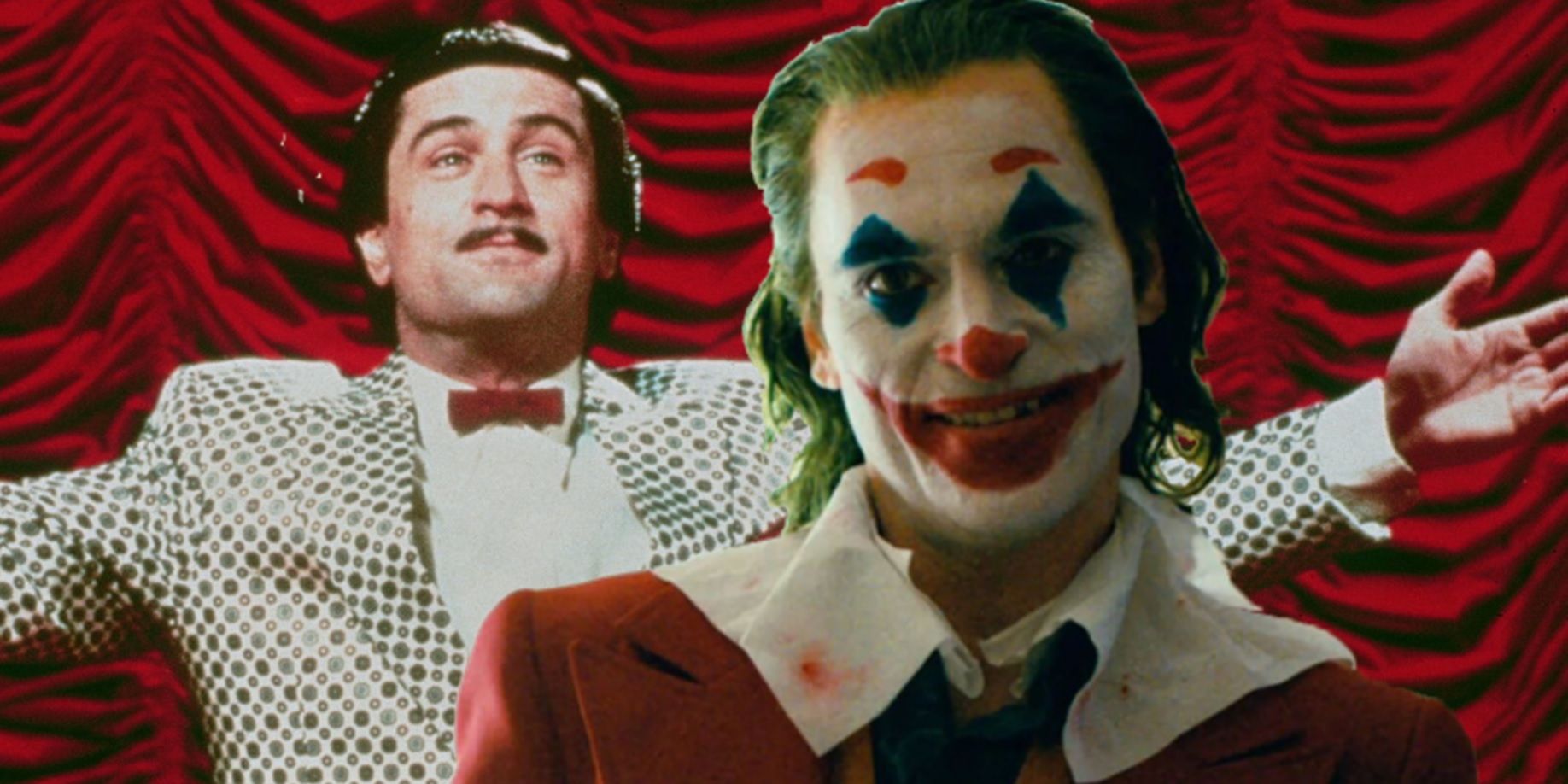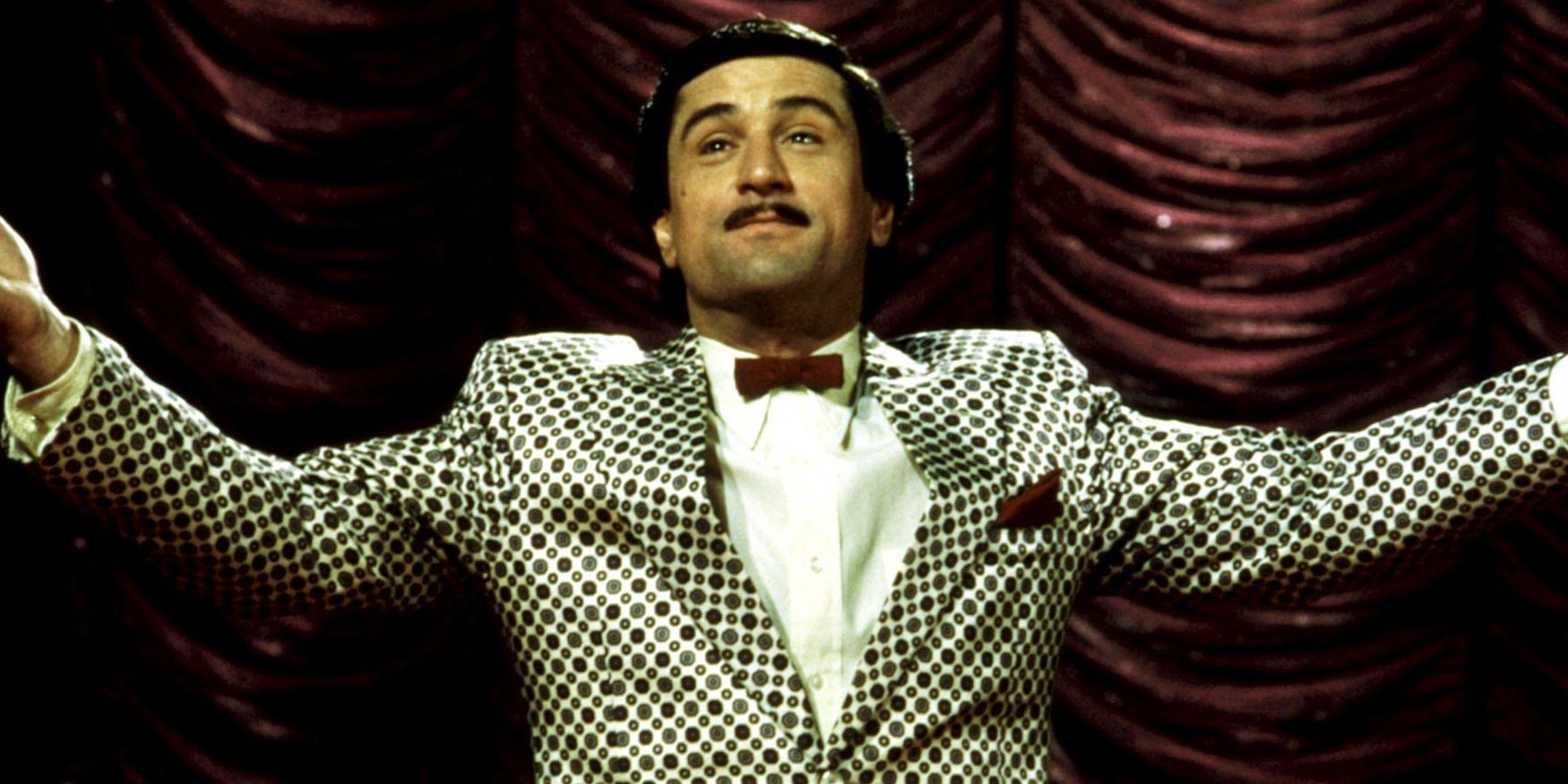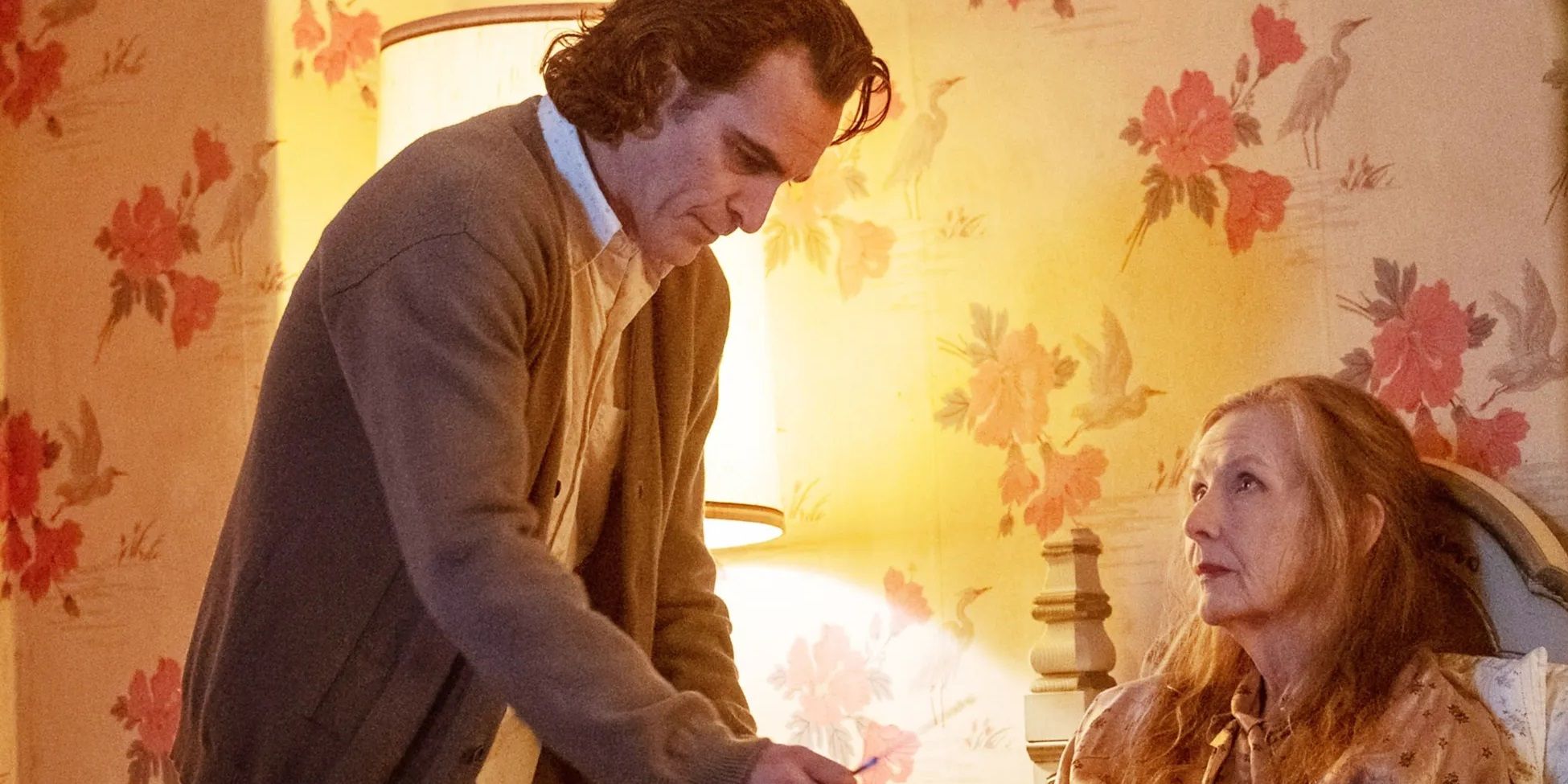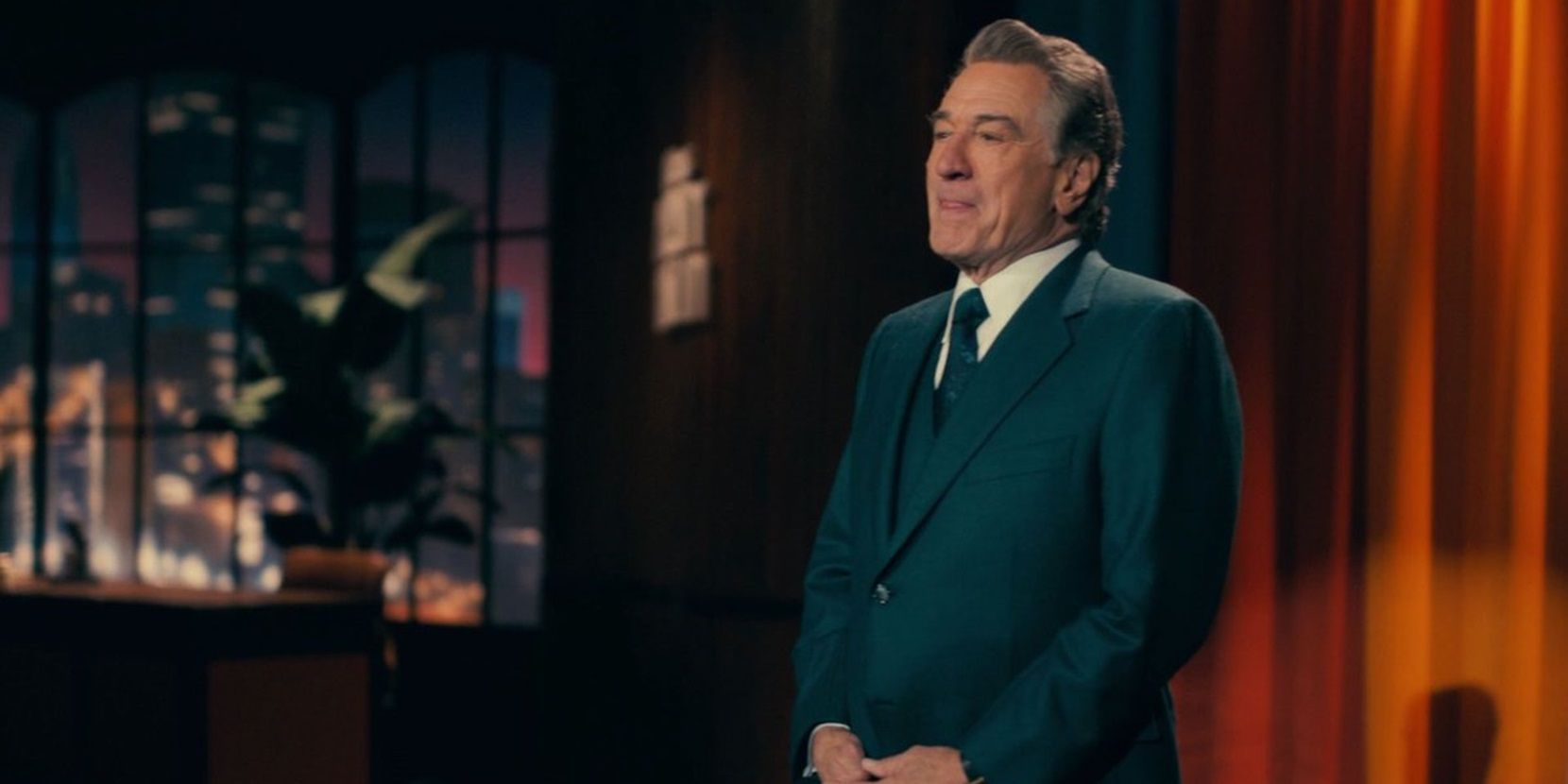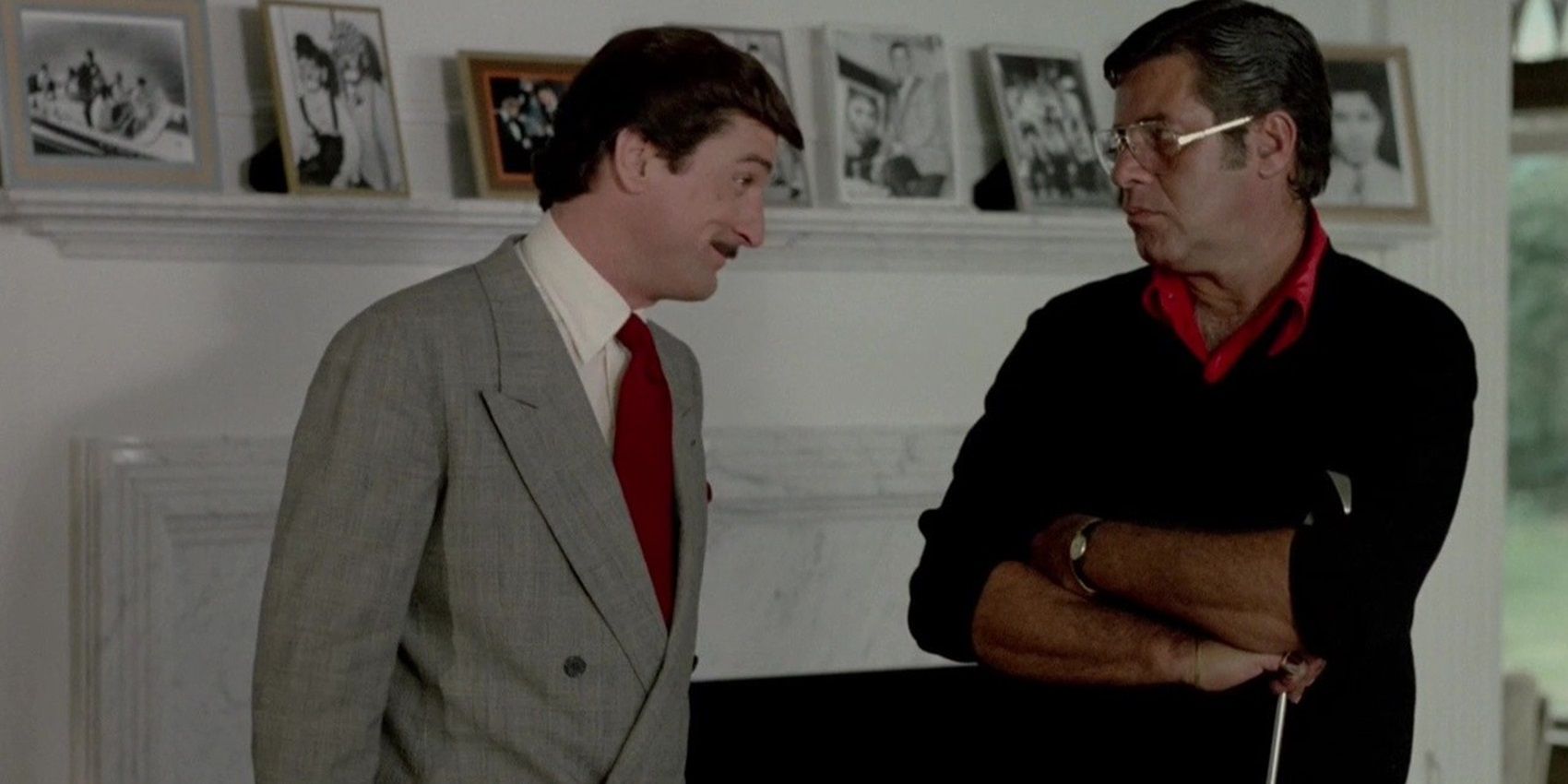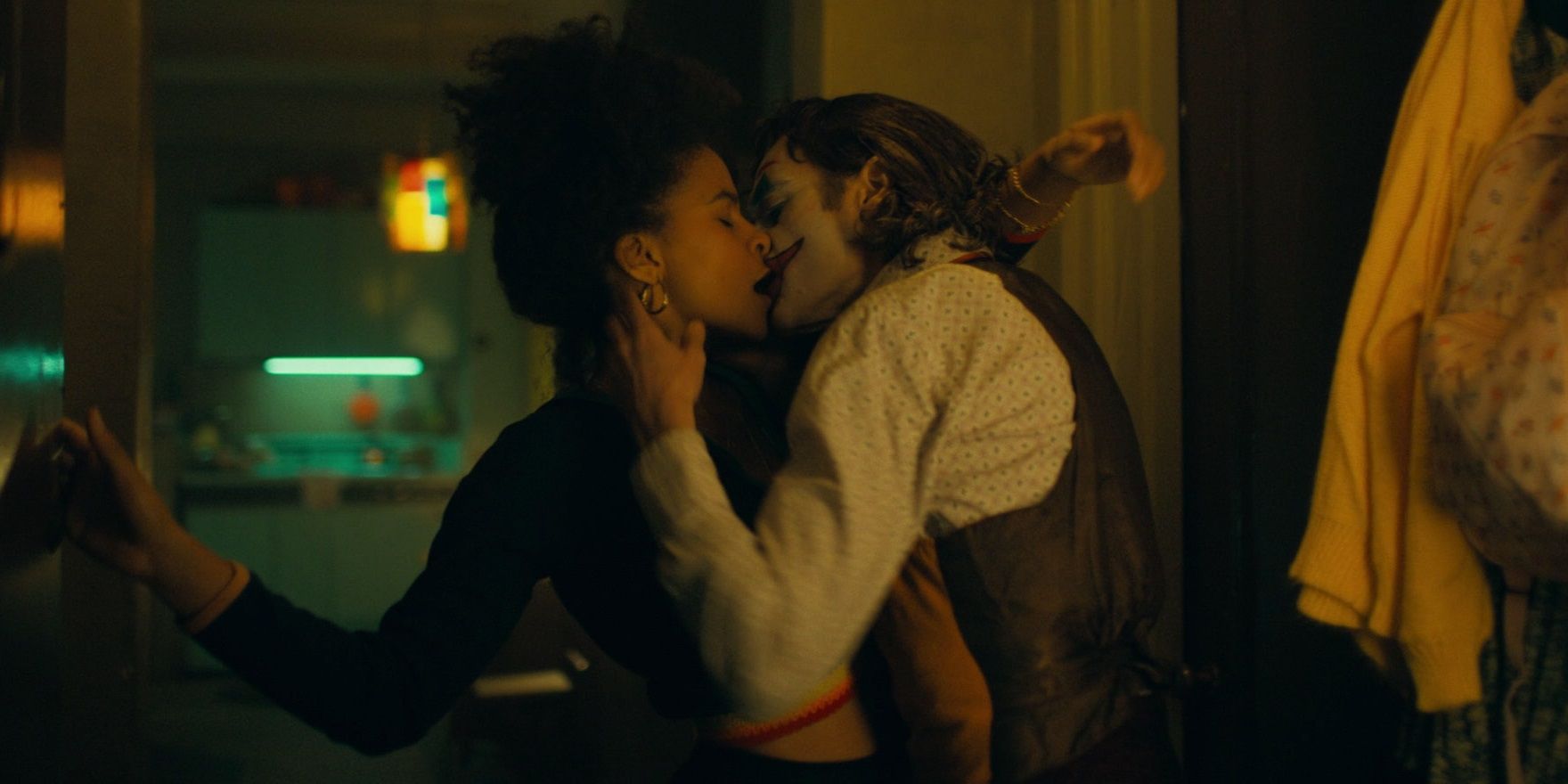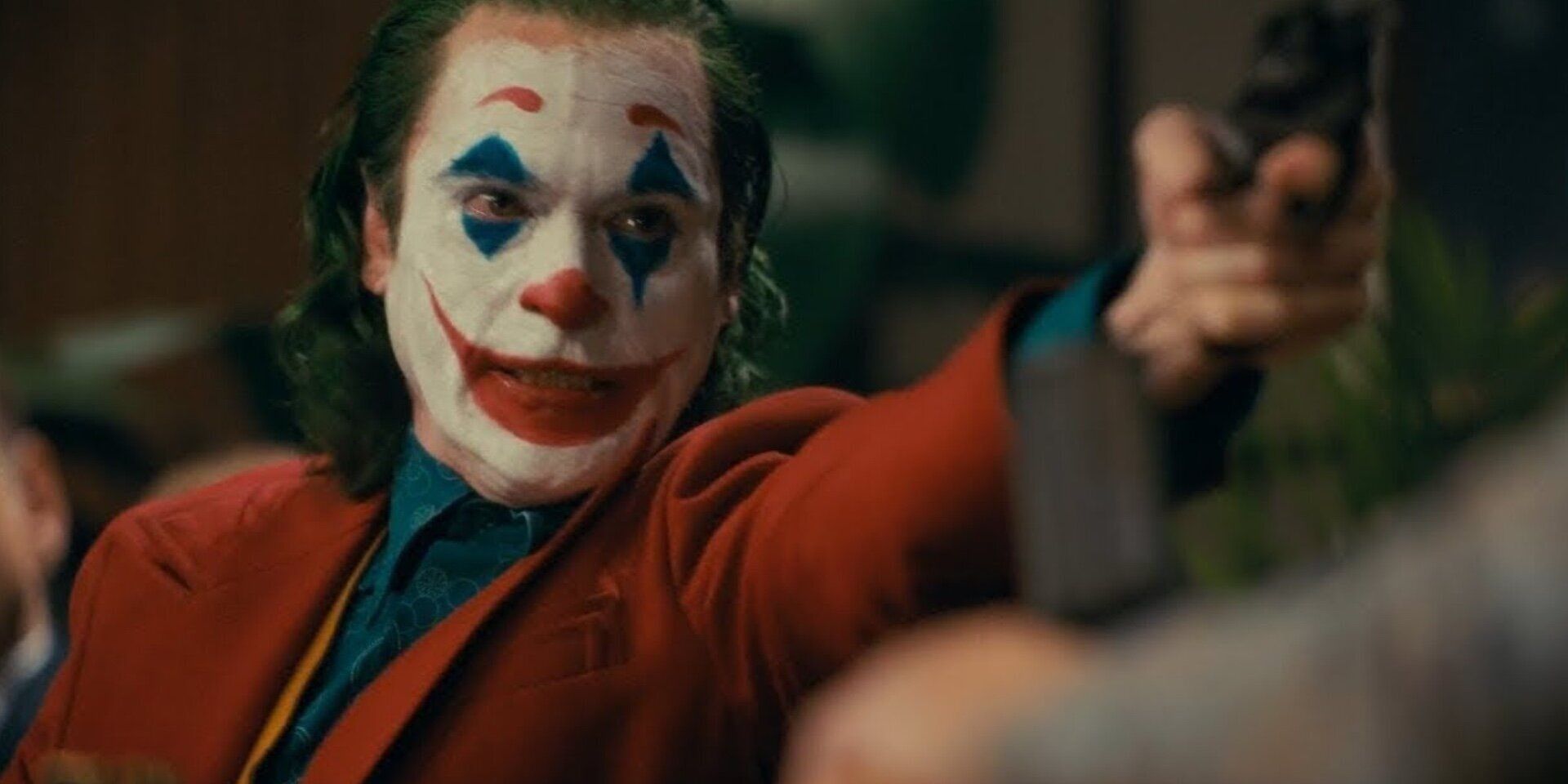Todd Phillips’ Joker was met with positive reviews and box office success, but it’s often been criticized for being derivative of Martin Scorsese’s underrated showbiz satire The King of Comedy. Phillips’ movie borrowed a lot from the Scorsese oeuvre – from the deranged vigilantism of Taxi Driver to the uncontrollable anger of Raging Bull – but its plot and characters have the most in common with The King of Comedy. There are plenty of parallels between these two darkly comedic crime movies about the illegal antics of delusional standup comedians who get pushed to the edge.
Although it was a box office bomb and received mixed reviews during its initial release in 1982, The King of Comedy has since been re-evaluated as one of Scorsese’s best and most underappreciated movies. When both Scorsese and Robert De Niro were reaching new heights in their own entertainment careers, they channeled the surreal experience of fame into a pitch-black comedy satirizing the futility and emptiness of pursuing fame. Joker isn’t exactly a remake of The King of Comedy – and doesn’t share its anti-fame theme – but the two movies have a lot in common.
Arthur Fleck & Rupert Pupkin Are Both Aspiring Comedians
The most obvious parallel between Joker and The King of Comedy is that their central antiheroes, Arthur Fleck (Joaquin Phoenix) and Rupert Pupkin (Robert De Niro) are aspiring comedians. Both dream of making it on the standup comedy circuit. As far as they’re concerned, their lives won’t matter until they’re famous comics. Arthur actually goes through the right channels to kickstart a standup career. He writes jokes in his downtime, he spends his evenings in comedy clubs, and he performs his act at open-mic nights. He can’t get through a set without bursting into laughter (due to his mental illness, pseudobulbar affect), but he’s heading in the right direction.
Rupert, on the other hand, wants to skip all the hard work that goes into honing a comedic voice and developing an act. He wants to jump to the front of the queue and enjoy the fame and fortune of a great comedian without putting in the hours to really become a great comedian. When Rupert tries to land a guest spot on a talk show, the talent booker even tells him that they’ll send someone out to watch his act if he keeps working on it. But that’s not good enough for Rupert; he wants to become an overnight sensation.
Arthur & Rupert Both Live With Their Mother
Both Arthur and Rupert live with their mother, but their mothers’ roles are very different. Rupert’s mother is always off-screen in The King of Comedy (voiced by Scorsese’s own mother, Catherine). During his standup monologue on The Jerry Langford Show, Rupert tells a joke about his mother with the dark punchline that she’s been dead for nine years. Either he lied about his mother’s death for the purposes of the joke, or he imagined the conversations and screaming matches he had with her throughout the film. Like most of The King of Comedy, whether Rupert’s mother is really there is ambiguous.
In Joker, Arthur’s mother, Penny (Frances Conroy) is definitely there. Her medical needs drive the plot, and her backstory influences Arthur’s character arc. She initially claims that she had an affair with Thomas Wayne while working for his family and that he’s Arthur’s biological father. But her mental stability is called into question, so Arthur steals her Arkham patient file to find out what really happened. After uncovering the horrifying truth that Penny allowed her boyfriend to abuse him when he was a young child, Arthur smothers her to death. Of the two movies' main characters, Arthur is the only one who resorts to matricide.
Robert De Niro Appears In Both Movies
Robert De Niro plays major roles in both Joker and The King of Comedy, and his role in the former is a direct callback to his character in the latter. In Scorsese's movie, De Niro plays the lead role of wannabe comedian Rupert, who is obsessed with a late-night talk show host (Jerry Lewis). In Joker, De Niro plays the talk show host with whom the wannabe comedian is obsessed. De Niro said that his Joker character isn’t supposed to be an older Rupert, but that he would’ve been open to that: “I would’ve said, ‘That’s interesting, maybe we’ll try to do that’” (via IndieWire).
Arthur & Rupert Have A Grudge Against A Talk Show Host
Both Arthur and Rupert hold a grudge against the host of a late-night talk show. In The King of Comedy, Rupert resents Jerry Langford because he feels he's owed a spot on his show. Joker's Arthur resents Murray Franklin because he aired footage of him bombing on-stage to make fun of him. Murray treats Arthur a lot more harshly than Jerry treats Rupert. Jerry just tells Rupert he’ll get him on the show to be nice and get rid of him, but Murray is one of Joker’s most evil side characters. He publicly ridicules Arthur using his national media platform to mock a fellow comedian who’s just starting out.
Arthur & Rupert Have An Active Imagination
Both Arthur and Rupert have an active imagination. It’s unclear how much of each movie is really happening and how much is taking place in the mind of its antihero. At the beginning of The King of Comedy, Rupert saves Jerry from being hounded by fans and rides in the back of his car with him. Later, he’s seen having dinner with Jerry, but some of Rupert’s reverse shots take place in his basement, suggesting that he’s imagining the whole conversation. This is confirmed when Rupert arrives uninvited at Jerry’s house; Jerry remembers the encounter in his car, but he doesn’t remember the dinner.
Similarly, much of Joker seems to be just in Arthur's mind. When he watches Murray’s show on TV, Arthur imagines himself appearing as a guest. He fabricates a relationship with his neighbor; when he thinks he’s stopping by his girlfriend’s apartment to confide in her, she’s deeply disturbed that a relative stranger has let himself into her home. The final scene suggests the entire movie might have taken place in Arthur’s head. At Arkham, he laughs to himself, seemingly reflecting on the film’s events. His therapist asks him to tell her the joke, and he simply says she wouldn’t get it.
Joker & King Of Comedy’s Climactic Sequences Take Place On The Talk Show
The climactic sequences in both Joker and The King of Comedy take place during the talk show that the antihero is obsessed with, but they go down very differently. Joker’s talk show scene is much darker. In The King of Comedy, Rupert kidnaps Jerry in order to hijack his show and take his place for the opening monologue. In Joker’s most terrifying moment, Arthur appears on Murray’s show in full clown makeup. In the middle of the interview, he pulls out a gun and shoots Murray dead. After their talk show appearances, both Arthur and Rupert’s dreams come true.
At the end of Joker, Arthur inspires a violent uprising that brings the cold-hearted society that rejected him to its knees. At the end of The King of Comedy, Rupert becomes an overnight celebrity with a hotly anticipated memoir on the way. In both cases, it’s not entirely clear if these outcomes really happened, or it was just wishful thinking on the part of the imaginative characters. Maybe Arthur inspired an army of Jokers and maybe Rupert found an unconventional route to fame and fortune – but it’s much more likely that they both were just incarcerated.

